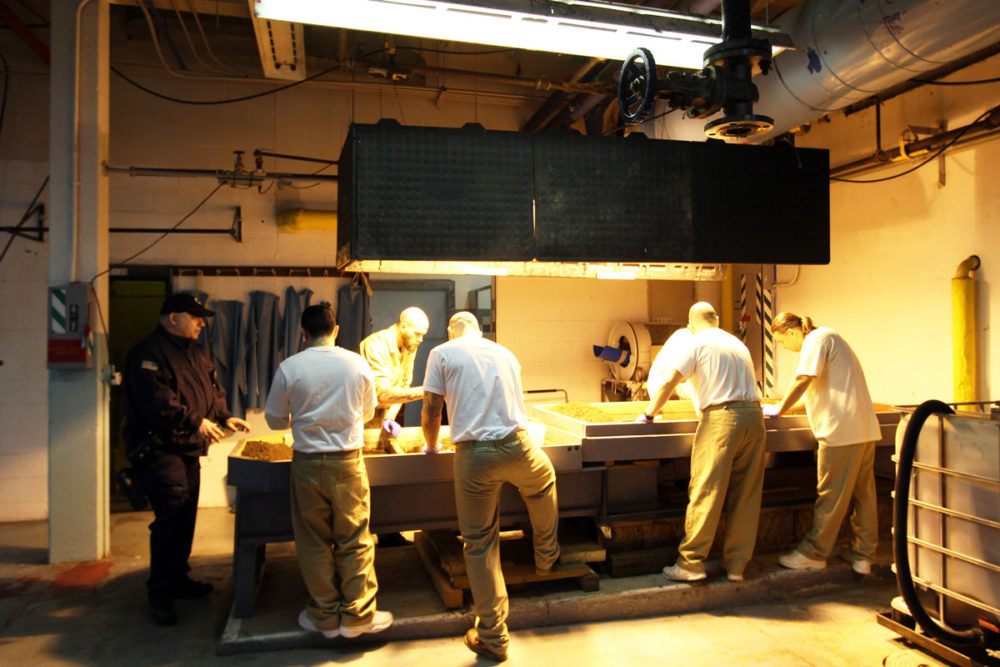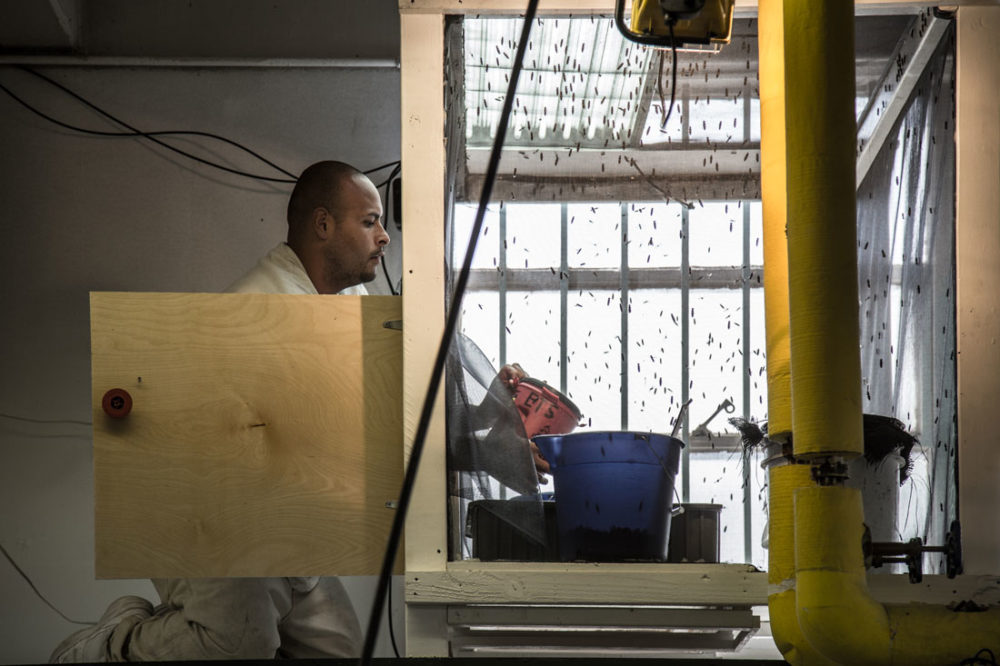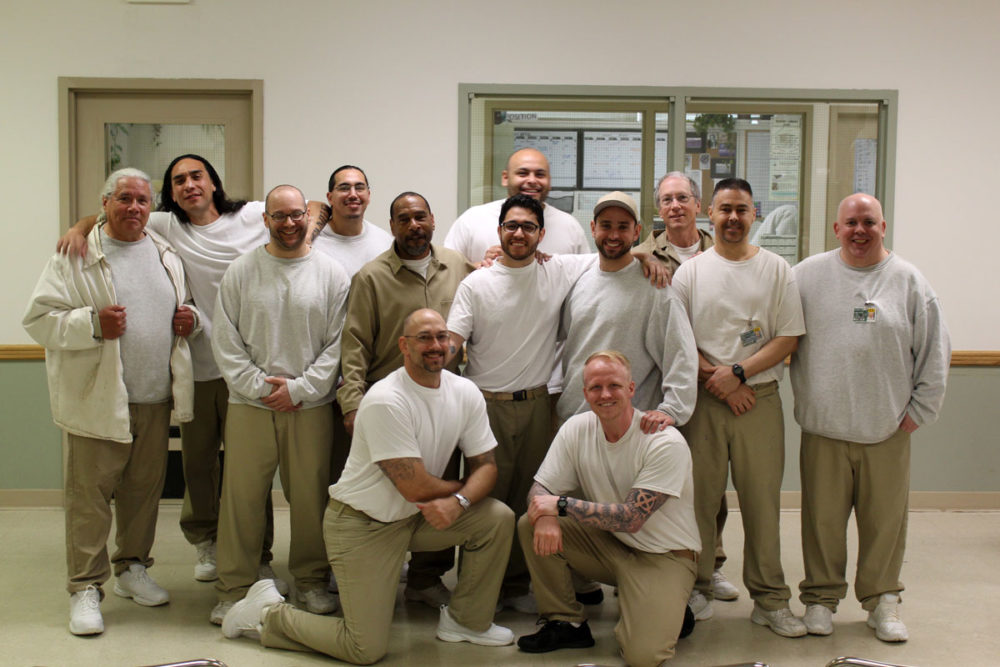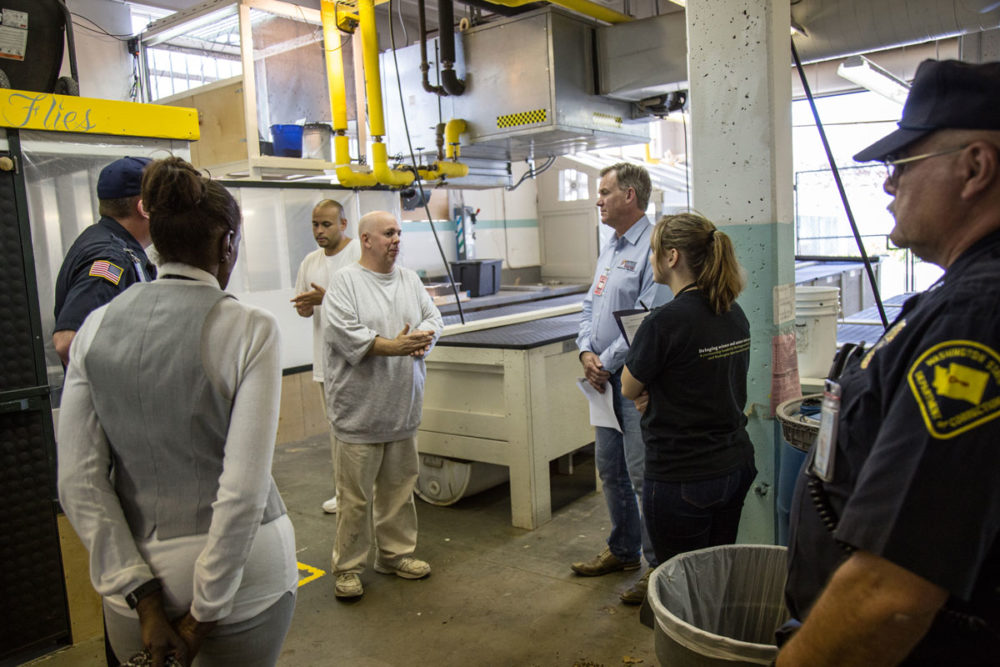Composting with “bugs”
The composting program housed by the Washington Corrections Center (WCC) is like none other. The program was originally founded at the Washington State Reformatory Unit (WRSU) at Monroe Correctional Complex in 2010 by two men incarcerated in the unit. Fifteen years later, the program has moved, but has continued to grow and partner with multiple non-profits and schools. The program is internationally recognized as a model and is still led and operated by incarcerated technicians and teaching assistants.

The program currently processes around 30,000 lbs of food waste every month. To transform waste into valuable resources, technicians work with three kinds of “bugs”:
- Worms (also known as red wigglers and the “vermi” in vermicomposting): Worms consume discarded grains, vegetables, and fruits. Their droppings are called castings, and worm castings are highly prized as fertilizer and soil amendment.
- Bokashi: Specialist bacteria can ferment/pre-process citrus, dairy, and meats that the worms cannot.
- Black soldier flies: Larvae of a stingless wasp (looks like a fly) can consume all kinds of food waste; they turn it into more larvae that are prized as high-quality animal feed
These approaches to composting represent relatively new technologies. Building on earlier studies, the WSRU program developed, tested, and improved methods that are now used at WCC. Chickens, even though they aren’t a bug, are the latest addition to the composting family. They can consume leftover food scraps and black soldier flies, and their droppings are a great fertilizer.
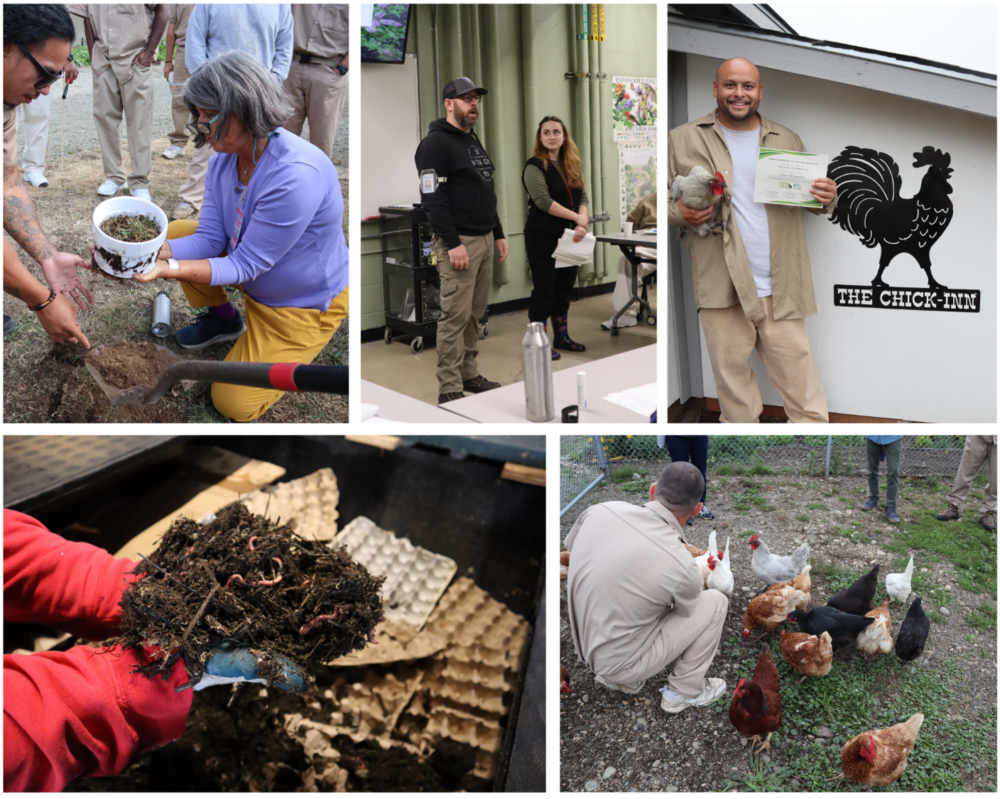
Wider impacts

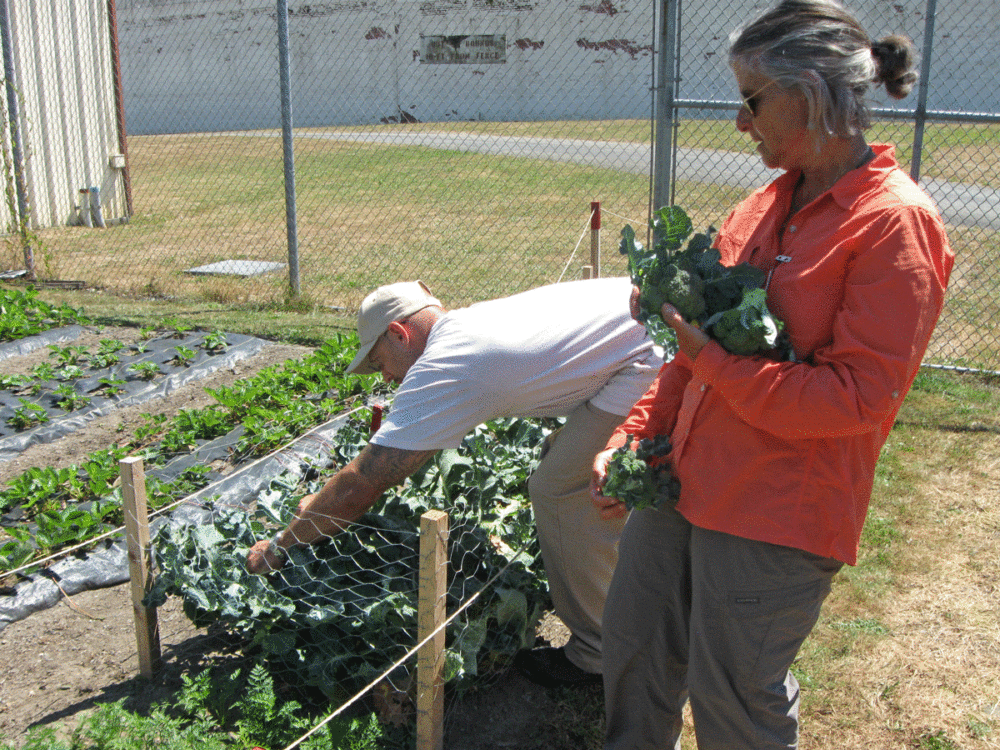
From the beginning, members of WSRU’s staff supported and championed the program. The program has provided starter kits for other residential facilities, including the sizable worm farm in Washington State Penitentiary‘s Sustainable Practices Lab (SPL). The program worked with Seattle’s Tilth Alliance and SPP partners at Evergreen to create formal education and certification for technicians and they have graduated two classes so far. In 2018 and ’19, graduate students from University of Washington (UW) visited the program to conduct research on soil amendments’ effects on vegetable growing; compost technicians advised on and supported those studies. In addition, University Beyond Bars staff offer vital program support and connection to other educational efforts at the prison.

Scientists, corrections specialists, professors, students, and entrepreneurs have visited and toured the facility. Technicians created a virtual tour for the International Conference on Sustainability in 2019.
Origin Story
In 2010, friends Nick Hacheney and Rory Brown took on the challenge of composting food waste with worms. Starting with a literal handful of worms and the gumption to figure it out, they built the first bins from whatever materials they could find: laundry baskets and buckets. They were lucky to have strong support from staff members Donna Simpson and Officer Art King; it’s critical to have staff allies who can help bring in resources and talk to other staff about making sure new activities don’t get in the way of essential operations or policy.

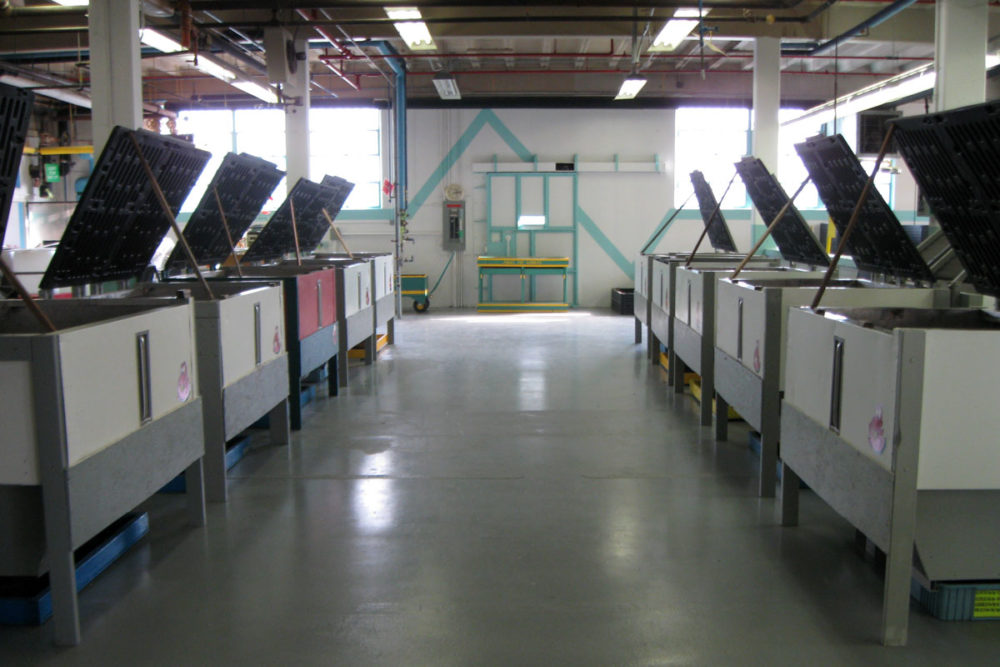
Nick and Rory learned how to grow the number of worms in breeding bins, a process called vermiculture. They also learned how and began to refine composting with worms, known as vermicomposting. Fairly quickly, they realized they could process food waste year-round, with almost no odor. They were sold!

2014 was a year of big changes. Rory moved to another prison, Officer Jeffry Swan took over supervision, and Evergreen staff began to play a bigger role. Nick presented at Turning Keys TEDx, and his representation of the program and the SPP model was remarkable. At the same time, technicians built new composting bins–these ones made of reclaimed mattress parts–and began trials with Bokashi.

Program evolution has continued at a fairly rapid pace. In 2015, they established the partnership with Tilth Alliance, and together with SPP-Evergreen developed a formal education curriculum. In 2023, SPP began to offer the credit-eligible Foundations in Composting course. In 2024, MCCCW completed their first class, WCC completed their second class, and SCCC started their first class. SPP offered additional composting workshops at WCC on soil science and composting toilets.
Today, almost all Washington state prisons have some form of large- or small-scale composting program or send their food waste to other facilities for composting. In 2024, all prisons converted a combined total of 1,666,199 lbs. of food waste into usable compost. By diverting food waste from landfills and creating compost, these programs enrich their soil for gardening, reduce greenhouse gas emissions, and save the facility significant costs from tipping and dumping fees. Composting is expected to gain even more traction in the next year as state law will require facilities to divert food waste from landfills.
Composting continues to be a major highlight for the Sustainable Practices Lab crew and staff at Washington Corrections Center (WCC). This team has been working with partners to develop a sustainable model for a robust composting education and training program. In 2024, they reached their goal of composting 100% of facility food waste and started taking food waste from MCCCW. In partnership with SPP, the team began creating how-to manuals on various methods of composting including bokashi and worms. These manuals will be shared as a resource for other facilities in 2025.
Blogs on the Composting Program
2019
Origin Story of a Compost Program
2018
Recognizing a world-class program
2017
Prison Shares Earthworm Wealth with Northwest Trek Wildlife Park
2016
Sustainable Practices Lab at Washington State Reformatory
2014
Ideas Worth Spreading: “Turning Keys” in a Washington prison
2012
Using Worms to Reduce Food Waste at Monroe Correctional Complex!
